Because History Makes Ron
DeSantis Feel Bad

Slave Codes
The transcript of the South Carolina Negro Act of 1740 that used to be online at South Carolina Educational Television is now on the Internet Archive Wayback Machine. It’s a sign of the times.
Slavery in the United States was governed by laws that developed from the 1640s to the 1860s. Every slave state had its own slave code and body of court decisions.1 By 1861 fifteen of the 34 United States were slave states with slave codes. The 19 free states also had laws regarding slaves.2
We’ll use the South Carolina 1740 code to explore typical slave laws. First passed when an English colony, it was ratified by the state General Assembly after the Revolution and “made perpetual.” Though occasionally revised, it was basically intact until the end of the Civil War.3
Purpose
WHEREAS, in his Majesty’s plantations in America, slavery has been introduced and allowed . . . so that the slave may be kept in due subjection and obedience, and the owners . . . may be restrained from exercising too great rigour and cruelty over them, and that the public peace and order of this Province may be preserved: We pray your most sacred Majesty that it may be enacted . . .
No. 670, An Act For The Better Ordering And Governing Negroes And Other Slaves In This Province, 17404
“Absolute” Slaves

I. That all Negroes and Indians, (free Indians in amity with this government, and degrees, mulattoes, and mustizoes, who are now free, excepted,) mulattoes or mustizoes who now are, or shall hereafter be, in this Province, and all their issue and offspring, born or to be born, shall be, and they are hereby declared to be, and remain forever hereafter, absolute slaves, and shall follow the condition of the mother, and shall be deemed, held, taken, reputed and adjudged in law, to be chattels . . . and it shall be always presumed that every Negro, Indian, mulatto, and mustizo, is a slave, unless the contrary can be made appear . . .
No. 670, An Act For The Better Ordering And Governing Negroes And Other Slaves In This Province, 1740
| Mulatto | A person of mixed race, specifically of European and African or African American descent |
| Mestizo | A person of mixed race, specifically of European and Native American descent |
| Issue | A legal term meaning descendants (children, grandchildren, etc.) |
| Chattel | People held in a system of slavery in which they were actual property and could be bought, sold, traded, or inherited |
All Blacks, Indians, Mulattoes, or Mestizoes in the colony were declared chattel slaves under the law, along with the future children of slave mothers. Currently free Indians, Mulattos, and Mestizos were excepted. No exception seems to be made for free Blacks.
Making all future children slaves created a self-sustaining domestic supply. Slave States arranged for the Constitution to permit the trans-Atlantic slave trade to America for twenty more years, but by 1808 they no longer needed it.6
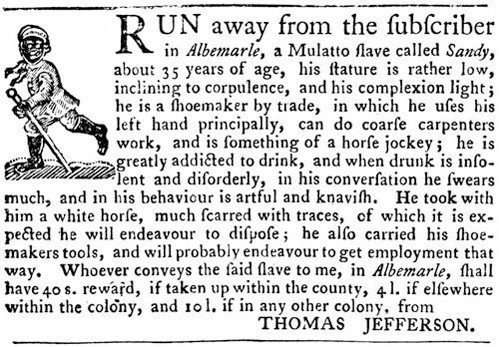
Travel Pass
III. And for the better keeping slaves in due order and subjection, Be it further enacted . . That no person whatsoever shall permit or suffer any slave under his or their care or management, and who lives or is employed in Charlestown, or any other town in this Province, to go out of the limits of the said town, or any such slave who lives in the country, to go out of the plantation to which such slave belongs, or in which plantation such slave is usually employed, without a letter superscribed and directed, or a ticket in the words following:
Permit this slave to be absent from Charlestown, (or any other town, or if he lives in the country, from Mr. ________ plantation, _______ parish,) for ________ days or hours; dated the _______ day of _______.
. . . and every slave who shall be found out of Charlestown, or any other town . . . or out of the plantation to which such slave belongs . . . without such letter or ticket as aforesaid, or without a white person in his company, shall be punished with whipping on the bare back, not exceeding twenty lashes.
No. 670, An Act For The Better Ordering And Governing Negroes And Other Slaves In This Province, 1740
Examination by Any White Person
V. And it shall be further enacted . . . That if any slave who shall be out of the house or plantation where such slave shall live, or shall be usually employed, or without some whiter person in company with such slave, shall refuse to submit or undergo the examination of any white person, it shall be lawful for any such white person to pursue, apprehend, and moderately correct such slave; and if any such slave shall assault and stricke such white person, such slave may be lawfully killed.
No. 670, An Act For The Better Ordering And Governing Negroes And Other Slaves In This Province, 1740
Dispersing Assemblies of Slaves
VII. And be it further enacted . . . That it shall and may be lawful for every justice assigned to keep the peace in this Province . . . to disperse any assembly or meeting of slaves which may disturb the peace or endanger the safety of his Majesty’s subjects, and to search all suspected places for arms, ammunition or stolen goods, and to apprehend and secure all such slaves as they shall suspect to be guilty of any crimes or offences whatsoever . . .
No. 670, An Act For The Better Ordering And Governing Negroes And Other Slaves In This Province, 1740
Capital Trials by Freeholders
IX. And whereas, natural justice forbids that any person, of what condition soever, should be condemned unheard, and the order of civil government requires that for the due and equal administration of justice, some convenient method and form of trial should be established; Be it therefore enacted . . . That all crimes and offences which shall be committed by slaves in this Province, and for which capital punishment shall or lawfully may be inflicted, shall be heard, examined, tried, adjudged and finally determined by any two justices assigned to keep the peace, and any number of freeholders not less than three or more than five . . . and shall hear the accusation which shall be brought against, such slave, and his or her defense, and shall proceed to the examination of witnesses and other evidences, and finally to hear and determine the matter brought before them, in the most summary and expeditious manner. . . to deter others from offending in the like manner.
No. 670, An Act For The Better Ordering And Governing Negroes And Other Slaves In This Province, 1740
Evidence Without Oath
XIII. And for the preventing the concealment of crimes and offences committed by slaves, and for the more effectual discovery and bringing slaves to condign punishment, Be it further enacted . . . That not only the evidence of all free Indians, without oath, but the evidence of any slave, without oath, shall be allowed and admitted in all causes whatsoever, for or against another slave accused of any crime of offence whatsoever; the weight of which evidence being seriously considered, and compared with all other circumstances attending the case, shall be left to the conscience of the justices and freeholders.
No. 670, An Act For The Better Ordering And Governing Negroes And Other Slaves In This Province, 1740
Capital Crimes Peculiar to South Carolina
XVI. And whereas, some crimes and offences of an enormous nature and of the most pernicious consequence, may be committed by slaves, as well as other persons, which being peculiar to the condition and situation of this Province, could not fall within the provision of the laws of England; Be it therefore enacted . . . That the several crimes and offences hereinafter particularly enumerated, are hereby declared to be felony, without the benefit of the clergy, that is to say: – if any slave, free Negro, mulattoe, Indian or mustizoe, shall willfully and maliciously set fire to, burn or destroy any sack of rice, corn or other grain, of the product, growth or manufacture of this Province, or shall willfully and maliciously set fire to, burn or destroy any tar kiln, barrels of pitch, tar turpentine or rosin, or any other the goods or commodities of the growth, produce or manufacture of this Province, or shall feloniously steal, take or carry away any slave, being the property of another, with intent to carry such slave out of this Province, or shall willfully or maliciously poison or administer any poison to any person, free man, woman, servant or slave, every such slave, free Negro, mulattoe, Indian, (except as before excepted,) and mustizoe, shall suffer death as a felon.
No. 670, An Act For The Better Ordering And Governing Negroes And Other Slaves In This Province, 1740
Presuming to Strike Any White Person

XXIV. And be it further enacted . . . That if any slave shall presume to strike any white person, such slave, upon trial and conviction . . . shall, for the first and second offence, suffer such punishment as the said justice and freeholders . . . shall in their discretion, think fit, not extending to life or limb; and for the third offence, shall suffer death. But in case any such slave shall grievously wound, maim or bruise any white person, though it by only the first offence, such slave shall suffer death. Provided always, that such striking, wounding, maiming or bruising, not be done by the command, and in the defense of, the person or property of the owner or other person having the care and government of such slave, in which case the slave shall be wholly excused, and the owner or other person having the care and government of such slave shall be answerable, as far as by law he ought.
No. 670, An Act For The Better Ordering And Governing Negroes And Other Slaves In This Province, 1740
Every Person Can Take a Runaway Slave
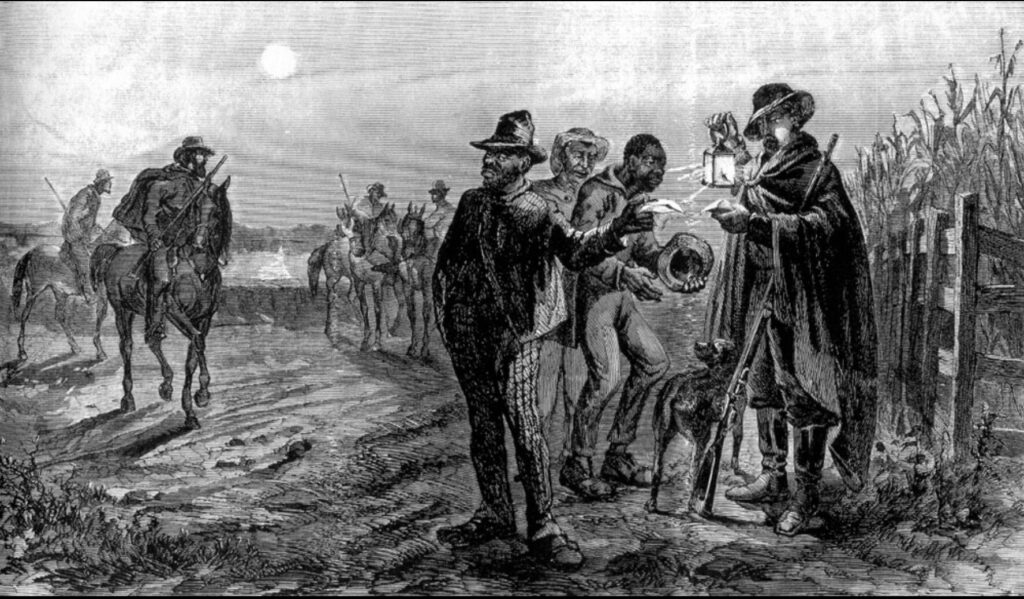
XXV. And be it further enacted . . . That it shall and may be lawful for every person in this Province, to take, apprehend and secure any runaway or fugitive slave . . .and the warden of the work-house, upon receipt of every fugitive or runaway slave . . . shall, as soon as conveniently it may be, publish, in the weekly gazette, such slave, with the best descriptions he shall be able to give, first carefully viewing and examining such slave, naked to the waist, for any mark or brand . . .
No. 670, An Act For The Better Ordering And Governing Negroes And Other Slaves In This Province, 1740
Whipping of Runaways
XXVI. And be it further enacted . . . the said warden is hereby directed and required to cause every such slave delivered into his custody as a runaway, upon receipt of such slave, to be whipped on the bare back, not exceeding twenty lashes; and on failure thereof, shall forfeit all his fees due for such slave.
No. 670, An Act For The Better Ordering And Governing Negroes And Other Slaves In This Province, 1740
Penalties for Hiding Runaways
XXIX. And be it further enacted . . . That if any free Negro, mulatto or mustizo, or any slave, shall harbour, conceal or entertain any slave that shall run away or shall be charged or accused with any criminal matter . . if a slave, shall suffer such corporal punishment, not extending to life or limb . . and if a free Negro, mulatto or mustizo, shall forfeit the sum of ten pounds, current money, for the first day, and twenty shillings for every day after, to the use of the owner . . . and that in case such forfeitures cannot be levied, or such free Negroes, mulattos or mustizoes shall not pay the same, together with the charges attending the prosecution, such free Negro, mulatto or mustizo shall be ordered by the said justice to be sold at public outcry . . .
No. 670, An Act For The Better Ordering And Governing Negroes And Other Slaves In This Province, 1740
No Trade or Commerce Allowed
XXXIV. And whereas, several owners of slaves have permitted them to keep canoes, and to breed and raise horses, neat cattle and hogs, and to traffic and barter in several parts of this Province, for the particular and peculiar benefit of such slaves, by which means they have not only an opportunity of receiving and concealing stolen goods, but to plot and confederate together, and form conspiracies dangerous to the peace and safety of the whole Province; Be it therefore enacted . . . That it shall not be lawful for any slave so to buy, sell, trade, traffic, deal, or barter for any goods or commodities, (except as before excepted,) nor shall any slave be permitted to keep any boat, perriauger or canoe, or to raise and breed, for the use and benefit of such slave, any horses, mares, neat cattle, sheep or hogs, under pain of forfeiting all the goods and commodities . . .
No. 670, An Act For The Better Ordering And Governing Negroes And Other Slaves In This Province, 1740
Wandering with Mischievous Instruments
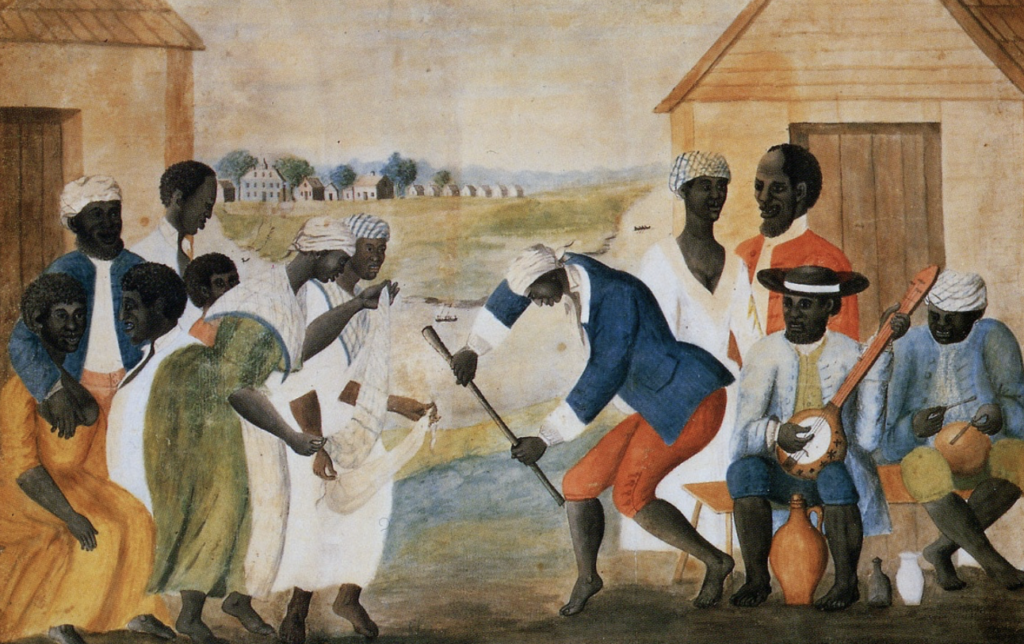
XXXVI. And for that as it is absolutely necessary to the safety of this Province, that all due care be taken to restrain the wanderings and meetings of Negroes and other slaves, at all times, and more especially on Saturday nights, Sundays, and other holidays, and their using and carrying wooden swords, and other mischievous and dangerous weapons, or using or keeping of drums, horns, or other loud instruments, which may call together or give sign or notice to one another of their wicked designs and purposes . . . Be it enacted . . . That it shall be lawful for all masters, overseers and other persons whosoever, to apprehend and take up any Negro or other slave that shall be found out of the plantation of his or their master or owner, at any time, especially on Saturday nights, Sundays or other holiday, not being on lawful business, and with a letter from their master, or a ticket, or not having a white person with them . . .if he or they be armed with such offensive weapons . . . to disarm, take up and whip: And whatsoever master, owner or overseer shall permit or suffer his or their Negro or other slave or slaves, at any time hereafter, to beat drums, blow horns, or use any other loud instruments or whosoever shall suffer and countenance any public meeting or feastings of strange Negroes or slaves in their plantations, shall forfeit ten pounds, current money, for every such offence . . .
No. 670, An Act For The Better Ordering And Governing Negroes And Other Slaves In This Province, 1740
Fines for Killing and Maiming Slaves
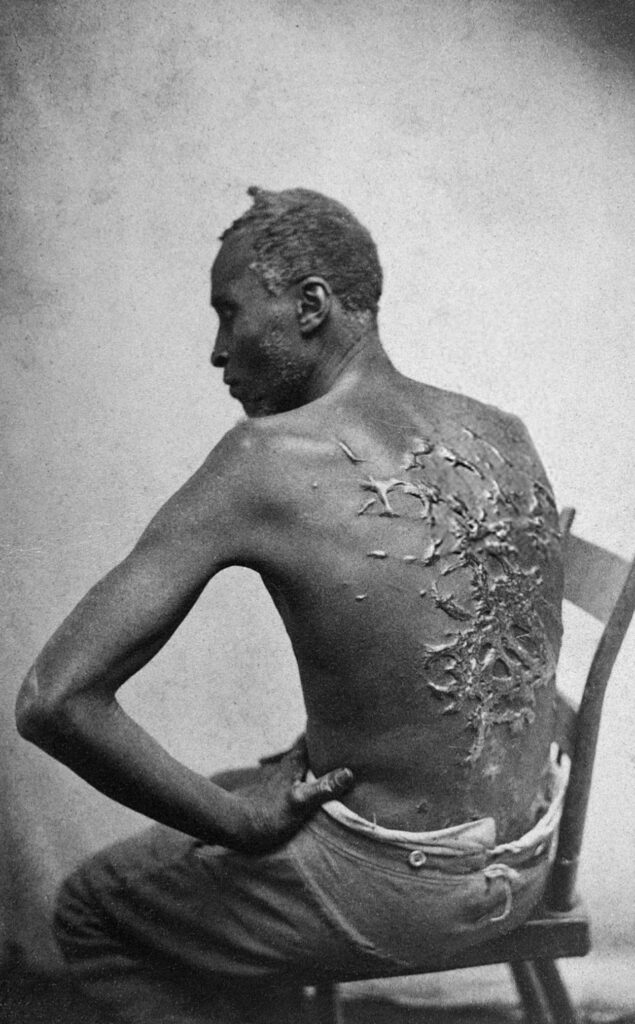
XXXVII. And whereas, cruelty is not only highly unbecoming those who profess themselves Christians, but is odious in the eyes of all men who have any sense of virtue of humanity; therefore, to restrain and prevent barbarity being exercised towards slaves, Be it enacted . . . That if any person or persons whosoever, shall willfully murder his own slave, or the slave of any other person, every such person, shall, upon conviction thereof, forfeit and pay the sum of seven hundred pounds . . . and is hereby declared altogether and forever incapable of holding, exercising, enjoying or receiving the profits of any office, place or employment, civil or military, within this Province: And in case any such person shall not be able to pay the penalty and forfeitures hereby inflicted an imposed, every such person shall be sent to any of the frontier garrisons of this Province, or committed to the work house in Charlestown, there to remain for the space of seven years, and to serve or to be kept at hard labor. . . And if any person shall, on sudden heat or passion, or by undue correction, kill his own slave, or the slave of any other person, he shall forfeit the sum of three hundred and fifty pounds, current money. And in case any person or persons shall willfully cut out the tongue, put out the eye, castrate, or cruelly scald, burn, or deprive any slave of any limb or member, or shall inflict any other cruel punishment, other than by whipping or beating with a horse-whip, cow-skin, switch or small stick, or by putting irons on, or confining or imprisoning such slave, every such person shall, for every such offence, forfeit the sum of one hundred pounds, current money. (emphasis added)
No. 670, An Act For The Better Ordering And Governing Negroes And Other Slaves In This Province, 1740
Dressing Slaves Above Their Station
XL. And whereas, many of the slaves in this Province wear clothes much above the condition of slaves, for the procuring whereof they use sinister and evil methods: For the prevention, therefore, of such practices for the future, Be it enacted . . . That no owner or proprietor of any Negro slave, or other slave, (except livery men and boys,) shall permit or suffer such Negro or other slave, to have or wear any sort of apparel whatsoever, finer, other, or greater value than Negro cloth . . . blue linen, check linen or coarse garlix, or calicoes, checked cottons, or Scotch plaids, under the pain of forfeiting all and every such apparel and garment. . .
No. 670, An Act For The Better Ordering And Governing Negroes And Other Slaves In This Province, 1740
The Work Day
XLIV. And whereas, many owners of slaves, and others who have the care, management and overseeing of slaves, so confine them so closely to hard labor, that they have not sufficient time for natural rest; Be it therefore enacted . . . That if any owner of slaves, or other person who shall have the care, management or overseeing of any slaves, shall work or put to labor any such slave or slaves, more than fifteen hours in four and twenty hours, from the twenty-fifth day of March to the twenty-fifth day of September, or more than fourteen hours in four and twenty hours, from the twenty-fifth day of September to the twenty-fifth day of March, every such person shall forfeit any sum not exceeding twenty pounds, nor under five pounds, current money, for every time . . .
No. 670, An Act For The Better Ordering And Governing Negroes And Other Slaves In This Province, 1740
Section XXII set fines for working slaves on “the Lord’s day, commonly called Sunday,” except for “works of absolute necessity and the necessary occasions of the family.” Whose family was not specified.
Fine for Teaching Slaves to Write
XLV. And whereas, the having of slaves taught to write, or suffering them to be employed in writing, may be attended with great inconveniences; Be it therefore enacted . . . That all . . . who shall hereinafter teach or cause any slave or slaves to be taught, to write . . . shall, for every such offense, forfeit the sum of one hundred pounds current money.
No. 670, An Act For The Better Ordering And Governing Negroes And Other Slaves In This Province, 1740
Slaves Fleeing to Florida
XLVII. And whereas, many disobedient and evil minded Negroes and other slaves . . . have lately deserted the service of their owners, and have fled to St. Augustine and other places in Florida, in hopes of being there received and protected . . . Be it therefore enacted . . . any white person or persons, free Indian or Indians, who shall, on the south side of Savannah river, take and secure, and shall from thence bring to the work house in Charlestown, any Negroes or other slaves, which within the space of six months have deserted . . . shall be paid by the public treasurer of this Province the several rates and sums following . . . for each grown man slave brought alive, the sum of fifty pounds; for every grown woman or boy slave above the age of twelve years brought alive, the sum of twenty five pounds; for every Negro child under the age of twelve years, brought alive, the sum of five pounds; for every scalp of a grown Negro slave with the two ears, twenty pounds; and for every Negro grown slave, found on the south side of St. John’s river, and brought alive as aforesaid, the sum of one hundred pounds; and for every scalp of a grown Negro slave with the two ears, taken on the south side of St. John’s river, the sum of fifty pounds.
No. 670, An Act For The Better Ordering And Governing Negroes And Other Slaves In This Province, 1740
“Florida” in 1740 included southwestern Georgia and was still Spanish.The British attacked the Florida city of St. Augustine in 1740.
The Stono Rebellion of 1739
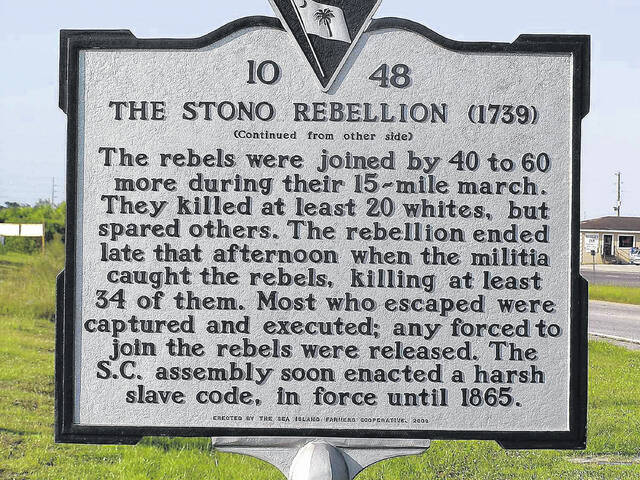
LVI. And whereas, several Negroes did lately rise in rebellion, and did commit many barbarous murders at Stono and other parts adjacent thereto; and whereas, in suppressing the said rebels, several of them were killed and others taken alive and executed; and as the exigence and danger the inhabitants at that time were in an exposed to, would not admit of the formality of a legal trial of such rebellious Negroes, but for their own security the said inhabitants were obliged to put such Negroes to immediate death; to prevent, therefore, any person or persons being questioned for any matter or thing done in the suppression or execution of the said rebellious Negroes, as also any litigious suit, action or prosecution that may be brought, sued or prosecuted or commenced against such person or persons for or concerning the same; Be it enacted . . . That all and every act, matter and thing, had, done, committed and executed, in and about the suppressing and putting all and every the said Negro and Negroes to death, is and are hereby declared lawful, to all intents and purposes whatsoever, as fully and amply as if such rebellious Negroes had undergone a formal trial and condemnation, notwithstanding any want of form or omission what-ever in the trial of such Negroes; and any law, usages or custom to the contrary thereof in any wise notwithstanding.
No. 670, An Act For The Better Ordering And Governing Negroes And Other Slaves In This Province, 1740
Footnotes
- “Slave Code for the District of Columbia,” Library of Congress, retrieved 9/5/23 ↩︎
- “Slave codes,” Wikipedia, retrieved 9/5/23 ↩︎
- “Slave Codes, 1690–1865,” South Carolina Encyclopedia, retrieved 9/5/23 ↩︎
- “No. 670, An Act For The Better Ordering And Governing Negroes And Other Slaves In This Province,” South Carolina Council, 1740 ↩︎
- “An Act for the Better Ordering and Governing Negroes and Other Slaves, South Carolina, 1740,” Bill of Rights Institute, 2023 ↩︎
- “Act Prohibiting Importation of Slaves,” Wikipedia, retrieved 9/5/23 ↩︎
Reply
You must be logged in to post a comment.